Forbes magazine has published its much-awaited annual list of the top hundred richest individuals in India.
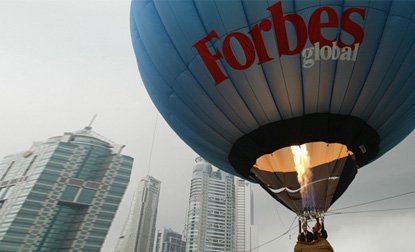
Incidentally, India was recently ranked second in the world, in terms of inequality in wealth-distribution, with billionaires controlling half of the country’s total financial assets. The minimum threshold to enter the Forbes 100 list is a record $1.25 billion (net worth of individual or family unit) this year. Last year, it was $1.1 billion.
This time there are 6 new entrants to the list this year, including Patanjali’s Acharya Balakrishnan, but there were also 13 drop-offs, the most notable of them being Flipkart’s Sachin Bansal and Binny Bansal, who rode last year’s e-commerce wave into the rich list, but could not maintain the position for a second year after a slew of setbacks.
Let’s take a look at the top 10 of the richest in India
Mukesh Ambani
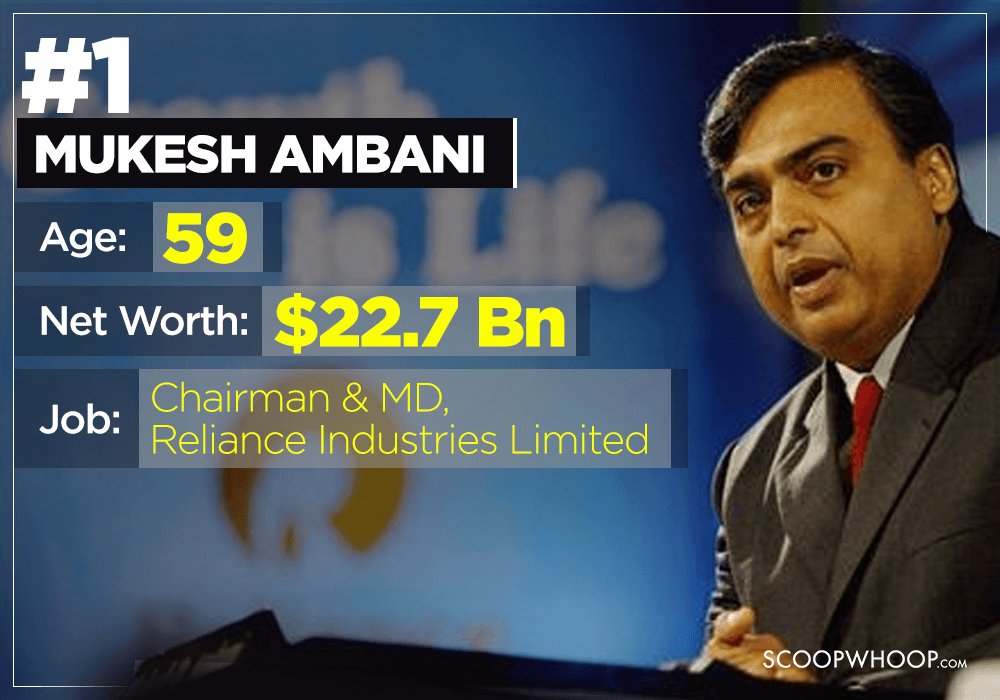
Mukesh Ambani is the largest shareholder of Reliance, which is the second most valuable company in India in terms of market value. It deals with petrochemicals, oil & gas. Ambani has maintained his position as the richest Indian for the 9th time consecutively.
Dilip Shanghvi
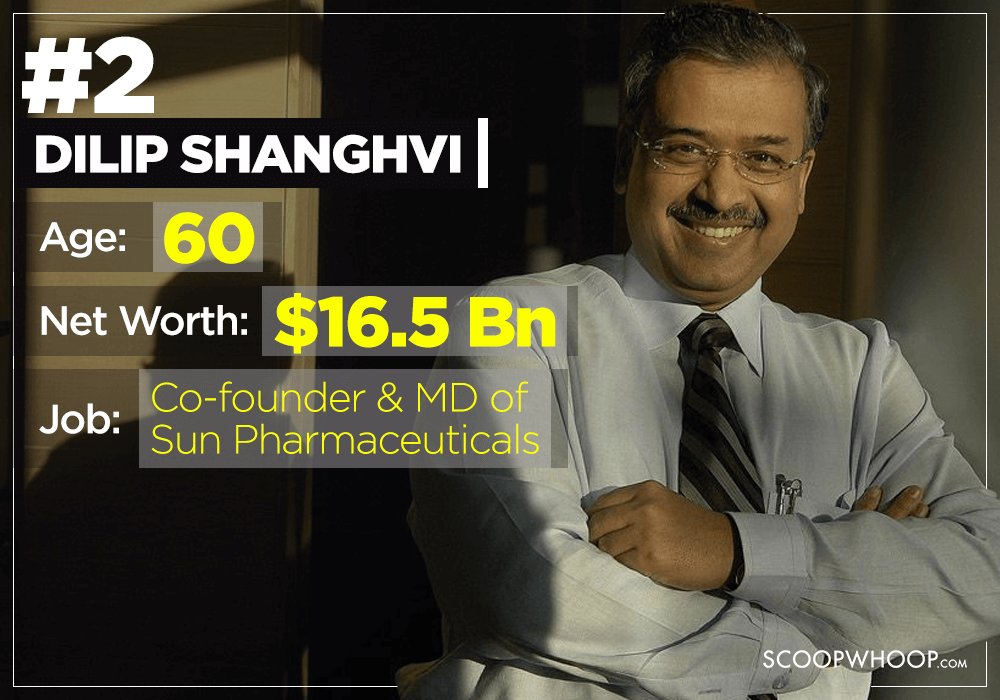
Dilip Shanghvi started Sun Pharma with partner Pradeep Ghosh in 1982 in Vapi, with a capital of just 10,000. In 2016, he was awarded the Padma shree, one of the highest civilian orders in India. Sun Pharmaceuticals Industries is the largest drug company in India today.
Hinduja Family – Srichand, Gopichand, Prakash and Ashok Hinduja
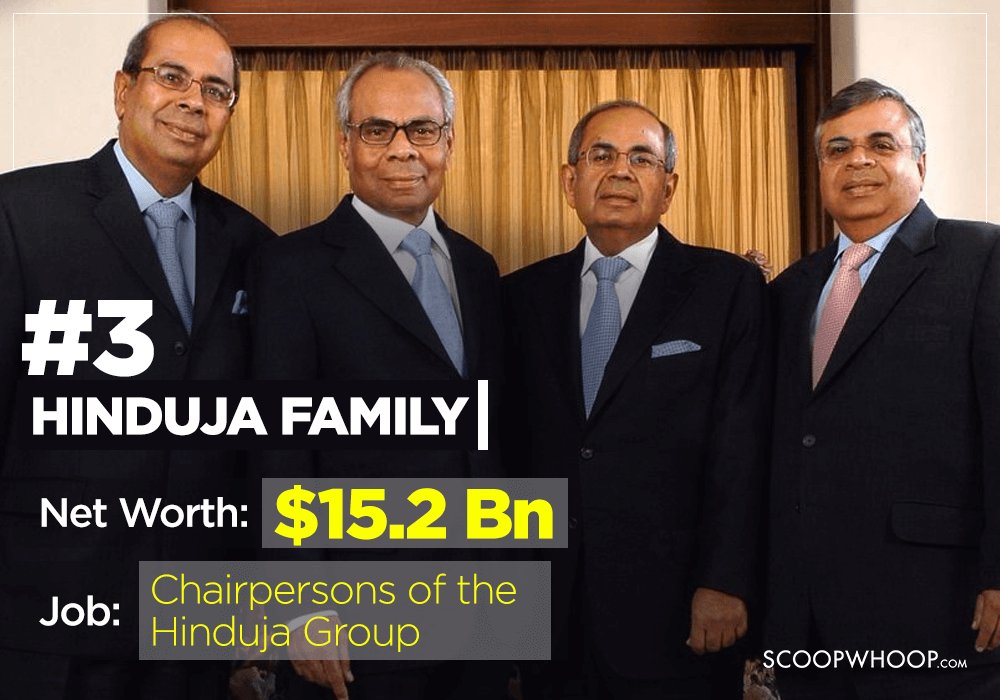
The Hinduja Group is an intercontinental-business owned by close knit siblings Srichand, Gopichand, Prakash and Ashok Hinduja. Srichand P Hinduja, the oldest, is the Chairman, Hinduja Group of Companies, Hinduja Bank of Switzerland and the Hinduja Foundations. Second comes Gopichand P Hinduja Co-Chairman of Hinduja Group of Companies, and head of Hinduja Automotive Limited, UK. Prakash and Ashok Hinduja are Chairmen of Hinduja Europe and India, respectively.
Azim Premji
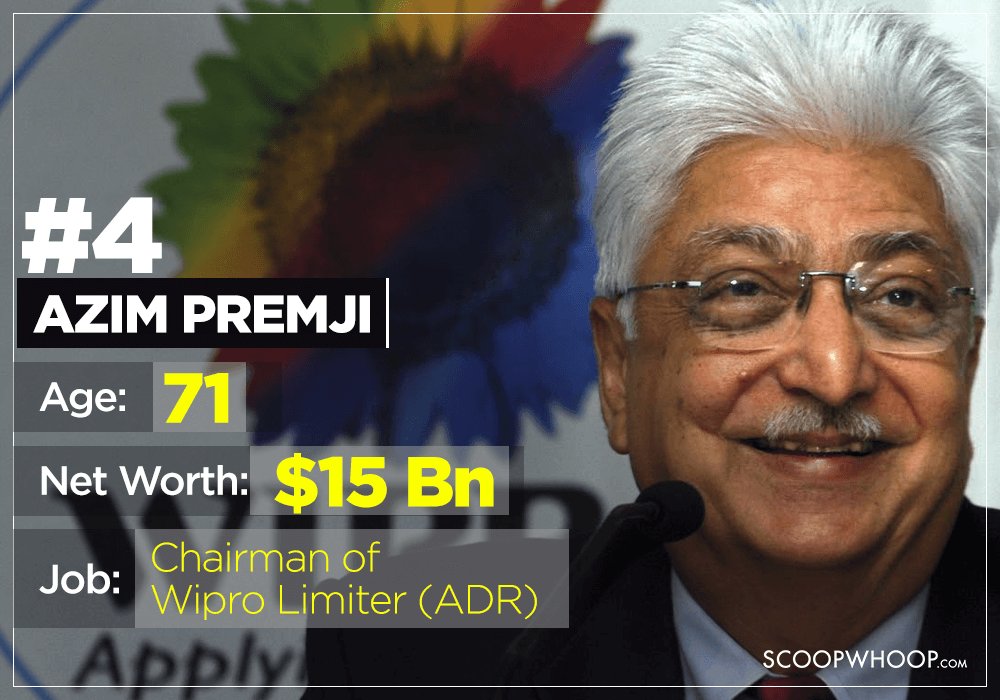
Premji is known as the Czar of the IT Industry in India, and over his career has received prestigious titles like CNN-IBN Indian of the Year Outstanding Achievement, Faraday Medal among others. He is also known for his philanthropic contributions.
Pallonji Mistry
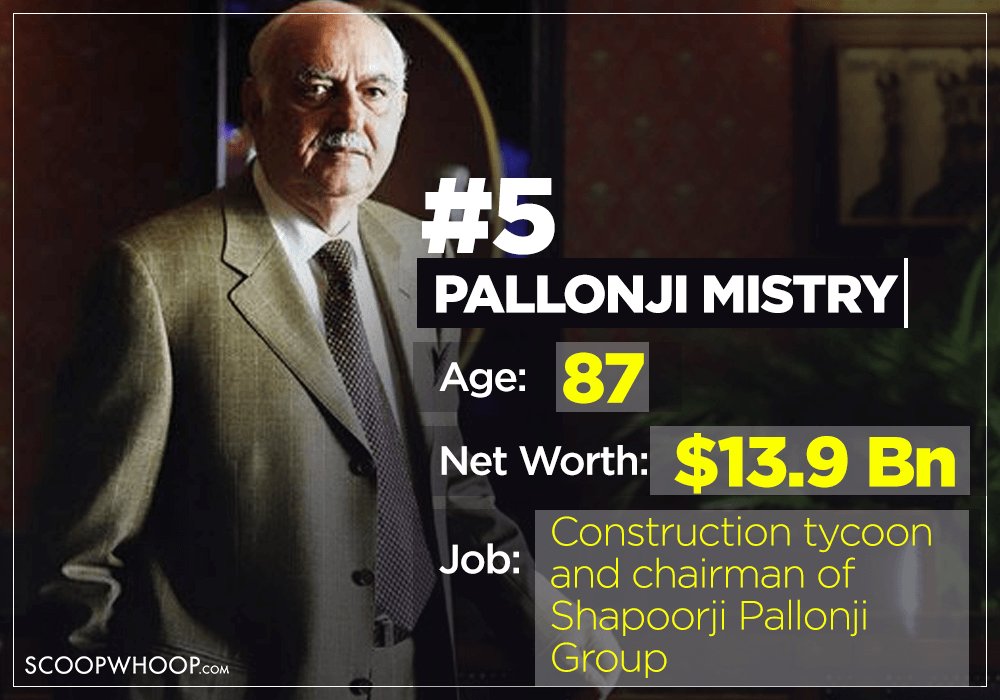
Pallonji, who is an Irish citizen, heads the 151-year-old Shapoorji Pallonji Group, which is currently run by his eldest son Cyrus Pallonji. The reclusive businessman, known as the Phantom of Bombay House,is the largest single in the conglomerate Tata Sons, with an 18.4 percent share, his greatest asset. In 2016 he was awarded the Padma Bhushan by the Indian government.
Lakshmi Mittal
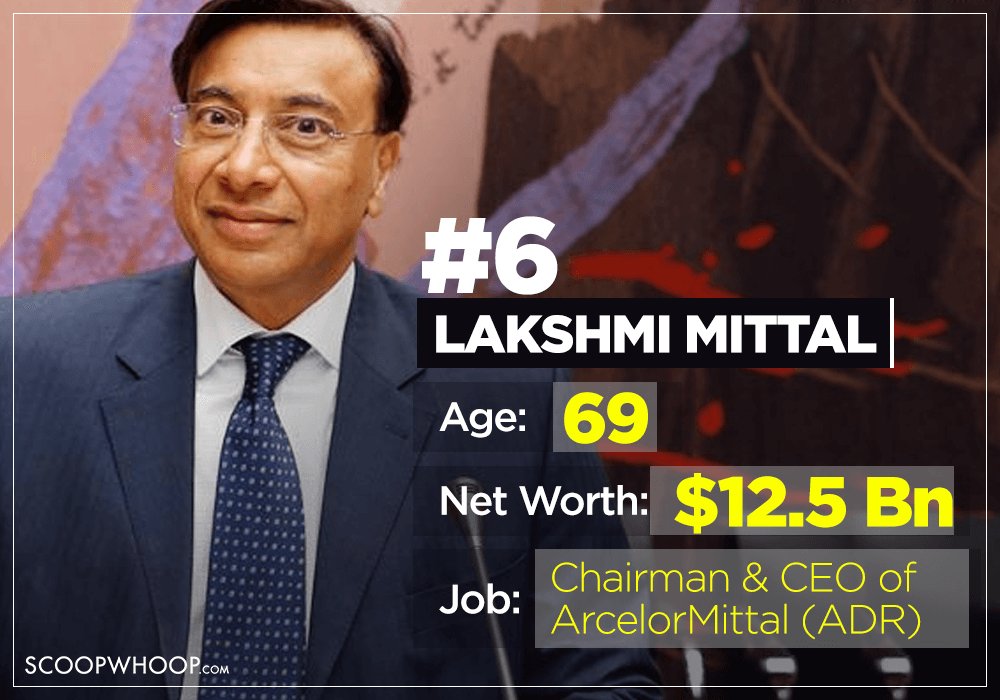
Steel baron Lakshmi Mittal heads the world’s largest steel company. Based out of London, he also owns a holds a 34% stake in Queens Park Rangers F.C.
Godrej Family – Led by Adi, Nadir Godrej and Jamshyd Godrej
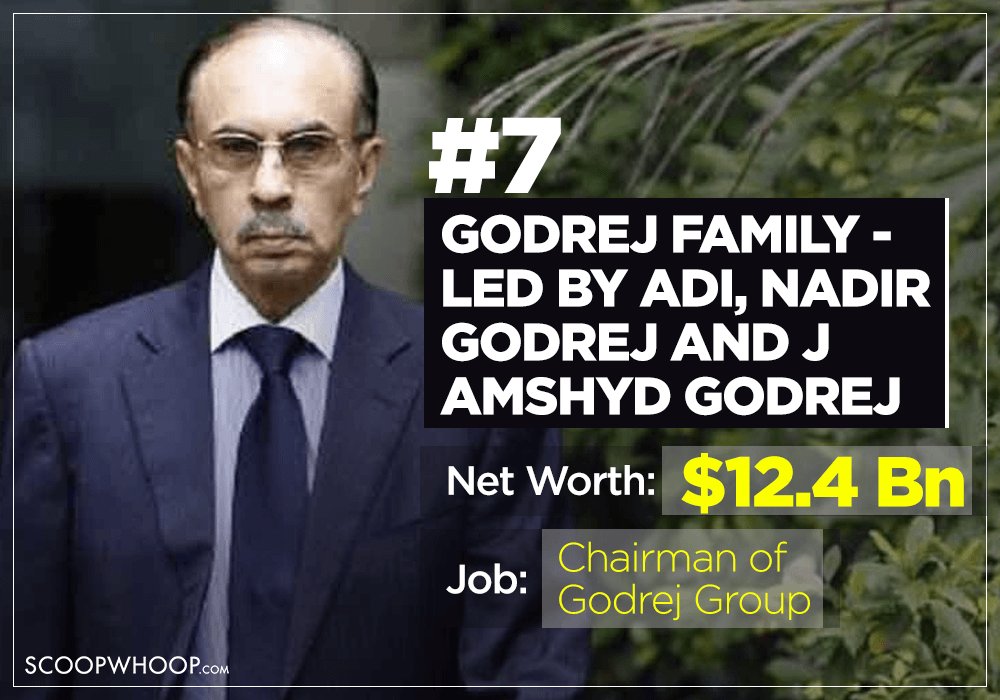
The Indian Parsi Godrej family is headed by Adi Godrej, who is also the Chairperson of the Godrej Group. The diverse Godrej Group is managed by Godrej along with brother Nadir and cousin Jamshyd Godrej, who together largely own the Group. The many categories that Godrej covers include real estate, consumer products, industrial engineering, appliances, furniture, security and agricultural products.
Shiv Nadar
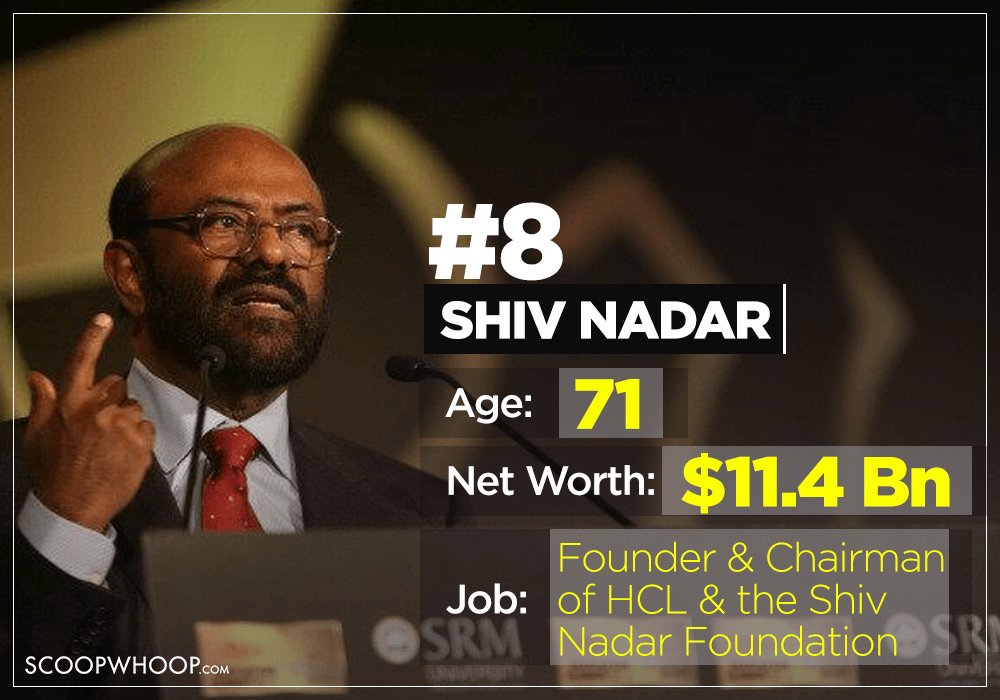
The self-made Indian IT pioneer and philanthropist is often called ‘Magus’ by close friends. Magus means wise or learned. He was awarded the Padma Bhushan in 2008 for his contributions to the IT sector in India, along with other distinguished awards and titles such as the Forbes’ 48 Heroes of Philanthropy in Asia Pacific.
Kumar Birla
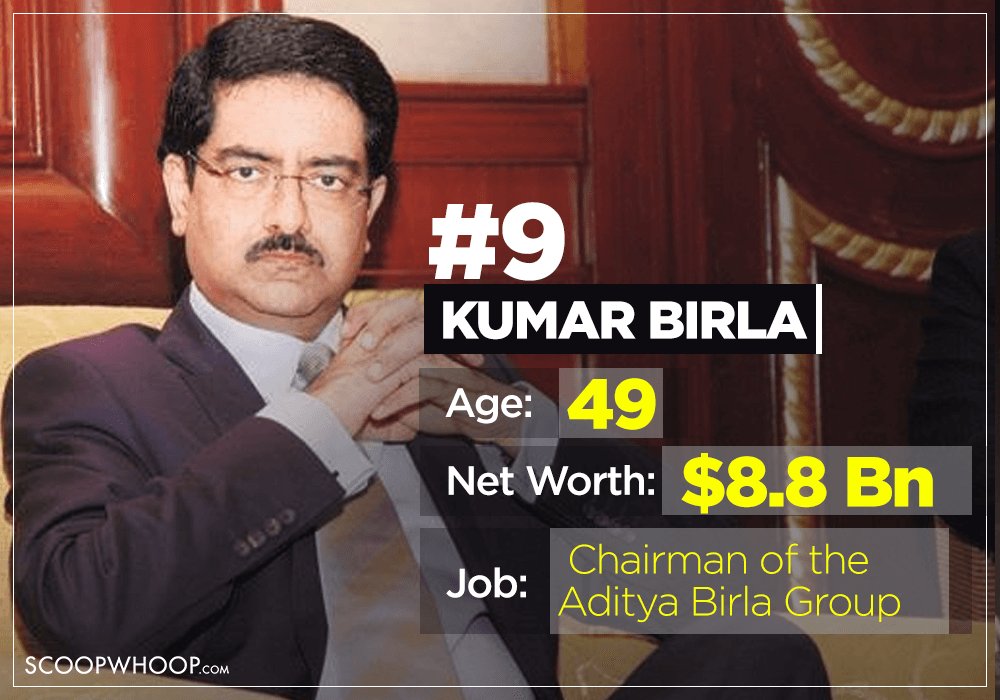
Aditya Vikram Kumar Mangalam Birla is the head of the third largest business group in India and is also the chancellor of the Birla Institute of Technology & Science. In 2016, he was given the ‘CEO of the Year Award’, just the latest addition to his already overcrowded trophy cabinet.
Cyrus Poonawalla
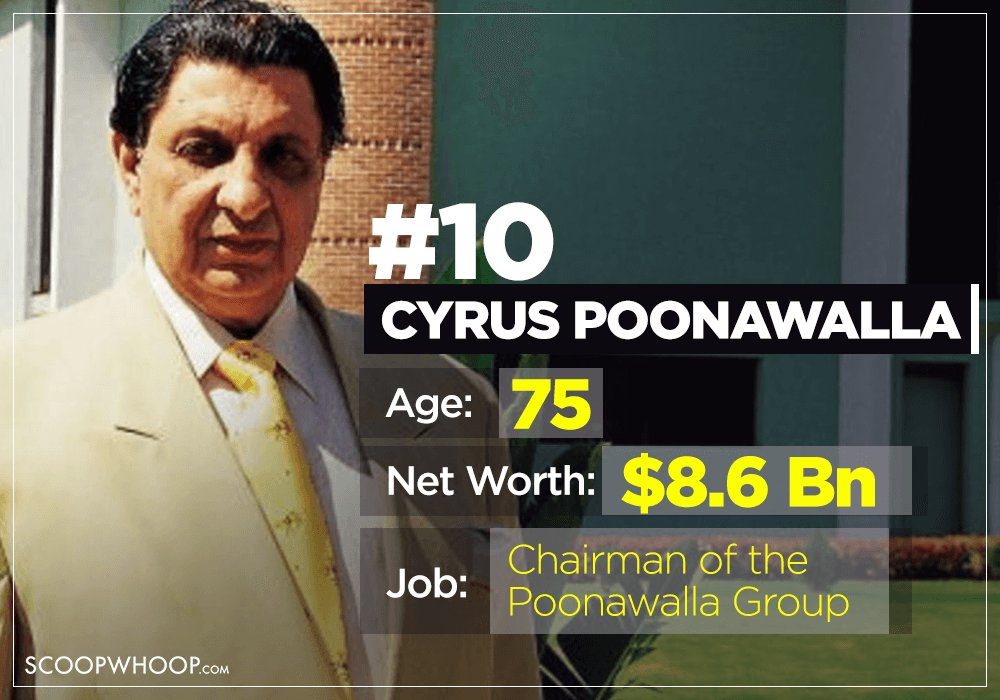
The Poonawalla Group includes Serum Institute of India, India’s premier biotechnology company that developed paediatric vaccines. The Indian government awarded him the Padma Shri in 2005 for his contributions too the field of medicine.
Four women also feature in the list this year, and 8 people from previous lists returned to the last, mostly due to the stock-market rise that has followed the business friendly policies of the Modi government. His push towards housing has greatly benefitted the cements, paint and related construction industries.
Original Artwork by Lakshay Vij

















